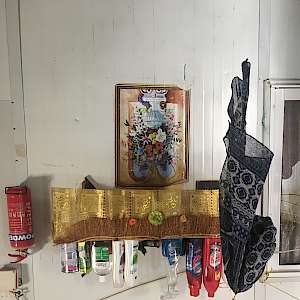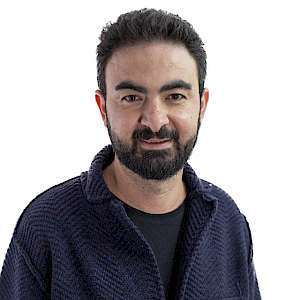The following is a summary of ongoing research into forced migration by Basem Mahmud, Marie Skłodowska-Curie Fellow in Sociology at the University of Granada:
In 2010, a popular uprising broke out in Tunisia. This brought to the people in the Arab worlds, who live under totalitarian and tyrannical regimes, the hope of starting a new life at home. The feeling that “yes, we can do it too” blew up across the entire region. People began to manage their old fear by gathering in small groups, social networks, and demonstrations. The response of the regimes was extremely violent, using weapons to prevent any change in the state structure of power. People were persecuted, killed, and obligated to leave in search of a safe place. This is what I call escaping, that is very different from what would later happen: migrating. It should be clear that my analysis here is based on the refugees and asylum seeker's subjectivities.
Escaping describes the situations of those internally displaced and those who moved to neighboring or Arab countries such as Turkey, Jordan, Lebanon, Iraq, and Egypt. While migrating is about crossing borders toward Europe, the USA, Canada, or other countries. I distinguish between them on base of three criteria: perception of the time (temporary vs. permanent), distance from home, and the objectives of the individual (see table below).
| Escaping | Migrating | |
|---|---|---|
|
Time |
The individual believes that soon they will be able to go back to their home. |
The individual believes that they will not be able to go back home, at least during the next few years. |
|
Distance |
The individual remains as close as possible to home. |
Any place becomes a possibility. Distance from home is not important. |
|
Objective |
Resuming life at home - there is no migration plan. |
Starting a new life far from home - there is a migration plan. |
When does the situation of those who have escaped to a neighboring country become a question of migration? The answer is, when they have a plan to start a new life in a place far from their original home. I argue that this what makes Europe suffer from the “big” wave of displaced people coming from Syria after 2014. It took three years for people to arrive at this decision: searching for a place, far from home, where one can start a new life. Forced migrants’ hope of starting a new life is everywhere, in the academic and non-academic sources on forced migrants that I have observed and still observe. Still, it has never been explicitly integrated into a theory that explains this experience.
"You know that we are here because the situation is bad and there are no other possibilities, there is no hope. Altogether the concept of homelands, the homeland is not built on the condition of a good life; it relies on hope. I mean, when you ask people, why did you leave? You will discover that is because of despair, but not just from despair, despair is the situation, but the idea is that there is no hope, exactly. Huh, there is no hope. Despair is the manifestation of the absence of hope. Hope is the most important condition to stay in a place. This (lack of hope) is what makes people leave."
Sari
Once the forced migrants have a plan for migration, the question becomes whether they decide to stay in the place they find themselves (in Turkey, for example) or move to another one. Their decision is based on what I call the four elements of the new-life hope: (1) their perception of the empathic emotions in the place; (2) their perception of dignity-recognition; (3) their legal status; (4) their material satisfaction. The first two concern emotions (affective), whereas the second two are instrumental issues. If the place provides the forced migrant with only affective benefits, their relationship with it could be described as temporary; they cannot stay there for a long time. If the place provides them with instrumental benefits only, this relationship could be described as rational-conditional: I stay here because it is the best place for now; it is better to stay because of my children’s feelings of stability, for instance. If the place does not provide the affective nor the instrumental aspects, it is a non-place, for the forced migrant. That is, a place to leave as soon as possible (a “runaway” relationship). Only when the place offers the affective and the instrumental aspects, could one feeling at home in the new place find a fertile territory to inhabit. Forced migrants have some advance knowledge of the instrumental conditions in different countries. However, the affective can only be experienced (and thus confirmed or refuted) during their everyday lives in the place.
All of this raises questions about the public debate on integration, temporary protection, and the prospect of returning home when the situation improves in the home country. The question is not only whether refugees want to return or not, but this research offers more insight into the impacts of those declarations, about the return home, on the forced migrant’s feeling of lasting safety and thus his practices of constructing home; should I construct a home if I must then leave soon? Is it not better to avoid the negative effects of further loss that this would entail?
"I came here with the hope of making a life. I mean, make a future. If the situation improves in Syria one day, I will do not go back to start again from zero! If I do that, it means that I lost years from my life. I will continue with what I have started here. I came here to make my future during these years. If I did not come here, I would die there in Syria, sitting there doing nothing between oppositions and the supporters of the regime, between bombs and missiles. That is if I stay alive." Ramiz

